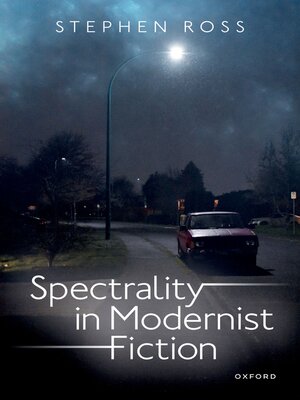
Sign up to save your library
With an OverDrive account, you can save your favorite libraries for at-a-glance information about availability. Find out more about OverDrive accounts.
Find this title in Libby, the library reading app by OverDrive.



Search for a digital library with this title
Title found at these libraries:
| Loading... |
Spectrality in Modernist Fiction argues that key modernist writers, chiefly Conrad, Forster, Butts, and Bowen, use spectral rhetoric to tackle problems of sex and sexuality, revolution, imperialism, capitalism, and desire all through complicated ethical engagements. These engagements invariably come packaged in, and are shaped by, the language of spectrality. In its capacity to articulate a particular sort of relationship between the past, the present and
the future, the spectral concerns the basic question of how to proceed, how to live with-maybe even address-ethical indeterminacy. Whether their spectral rhetoric traces the logics of capitalist possession (Conrad), queer "friendship" and paganized Christianity (Forster), regressive politics haunted by
historical traumas (Butts), or the devious passages of perverse desire (Bowen), these writers locate something like hope in their ghosts. The ethical and political impasses they chart through their spectral rhetoric are not final, but temporary, and the drive to overcome them constitutes a tensile optimism.






